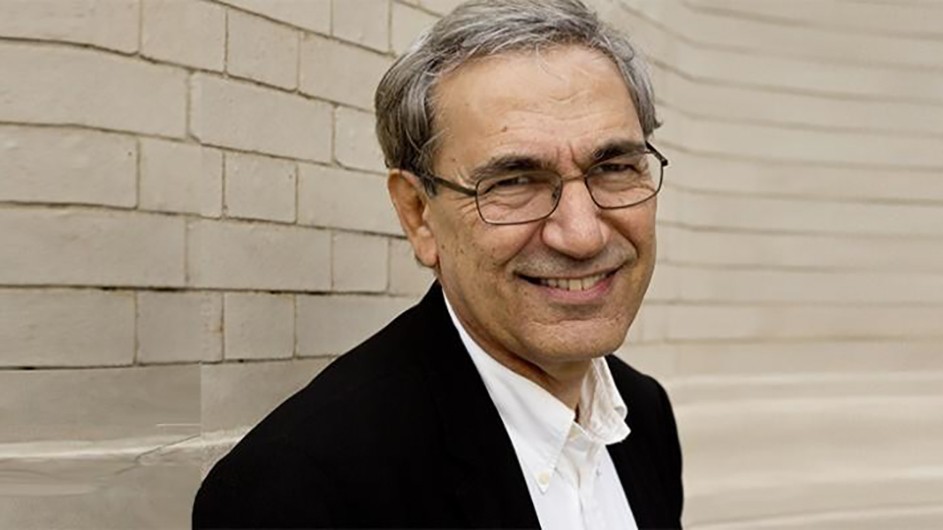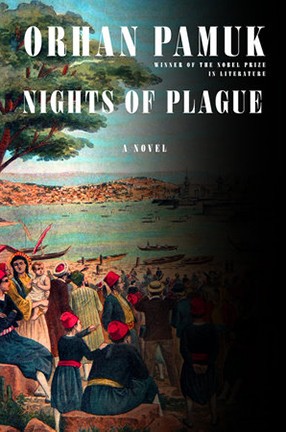Orhan Pamuk’s New Novel Is About a Plague in the Ottoman Empire
Nights of Plague was well underway when COVID struck, but the pandemic influenced the book all the same.

In Nights of Plague, a new novel by Orhan Pamuk, the Robert Yik-Fong Tam Professor in the Humanities at the School of the Arts, it is April 1900, on an imaginary island that is part of the Ottoman Empire, located in the eastern Mediterranean between Crete and Cyprus. Half the population is Muslim, the other half are Orthodox Greeks, and tension is high between the two. When a plague arrives—brought either by Muslim pilgrims returning from Mecca, or by merchant vessels coming from Alexandria—the island revolts.
To stop the epidemic, the Ottoman Sultan, Abdul Hamid II, sends his most accomplished quarantine expert, an Orthodox Christian, to the island. Some of the Muslims, including followers of a popular religious sect and its leader, Sheikh Hamdullah, refuse to take precautions or respect the quarantine. And then a murder occurs.
As the plague continues its rapid spread, the sultan sends a second doctor to the island, a Muslim, and strict quarantine measures are declared. But the incompetence of the island’s governor and the local administration, and the islanders’ refusal to respect the bans, doom the quarantine to failure. Because the plague might spread to the West and to Istanbul, the sultan bows to international pressure and allows foreign and Ottoman warships to blockade the island.
Pamuk, who won the Nobel Prize in Literature in 2006, discusses the book with Columbia News, as well as how COVID affected the novel, what he is teaching this semester, and who would be his preferred guests at the next dinner party he hosts.
What inspired you to write this novel?
I’d been thinking about writing a plague novel for the last 40 years. At first, I thought about setting it in medieval Ottoman times. The subjects were quarantine, fatalism, whether Muslims do not take quarantine seriously, are they fatalists? Then later, I read about the third plague pandemic, which started in 1894, and quarantine uprisings in Russia and Poland, where politics were getting increasingly authoritarian. I decided to set my novel during the third plague pandemic in 1900, and make it an allegory of governments becoming more authoritarian during the pandemic.

Did the COVID pandemic change the novel in any way?
I had already decided to write about a plague, quarantine, and authoritarianism. I read a lot and did a lot of research, and had been working on the novel for three and a half years when the coronavirus pandemic started. I realized that—wow—although I had researched so much, my characters were not as afraid of plague as I was of the coronavirus. So I injected my fear into my characters.
What books have you read lately?
I am now writing a novel about people playing cards. The events take place in 1942, during the Second World War, in Istanbul. So I’m reading books about the history of playing cards—the images, where they come from, and so on.
How does the intersection of teaching and writing affect you?
A lot. I teach all these novels that I’ve read, and what I’m teaching is what I know best. I’ve been teaching some 40 novels for the last 15 years; I’ve almost memorized these novels. But every year, there are smart students who make me, happily, think about new aspects of the novels. The students’ intelligence and enthusiasm inspire me. I learn a lot from them. I try to make them think about literature without any prejudice, to feel that their intellect is capable of understanding anything.
What are you teaching this semester?
With Bruce Robbins, the Old Dominion Foundation Professor in the Humanities, I’m co-teaching a seminar, the Political Novel. We’re teaching Fyodor Dostoyevsky’s Demons, Ivan Turgenev’s Fathers and Sons, Herman Melville’s Benito Cereno, Joseph Conrad’s Nostromo, Italo Calvino’s The Watcher, Virginia Woolf’s Orlando.
We want our students to understand that the political novel is not only about uprisings and killings, bombs and wars. It’s also about, for example, little details, how a text may say something and then contradict itself on the next page.
What are you working on now?
Many things simultaneously: My novel, The Museum of Innocence, may become a series, so I’m checking the script (written by someone else). I’m working on articles for art magazines, introductions to various books, a lot of interviews, research for another novel. I’m going to deliver some lectures next fall in Paris at the Collège de France, so I’m also writing those lectures.
You are hosting a dinner party. Which three academics and/or writers, dead or alive, would you invite, and why?
I would love to invite some of the writers that I’m teaching in the Political Novel course—Calvino, Woolf, and Melville. I’d love to hear their thoughts on what my students are saying about their texts.